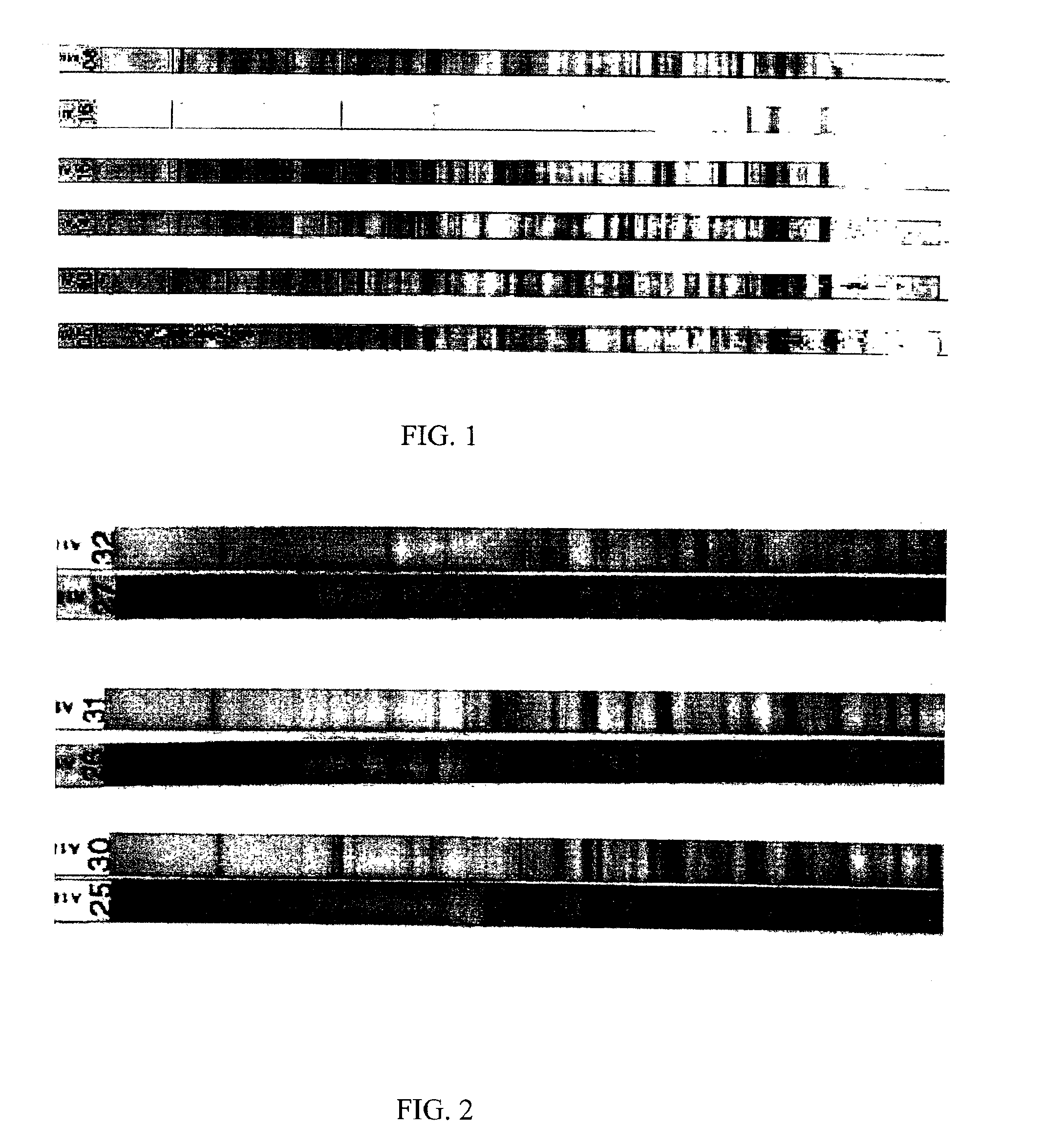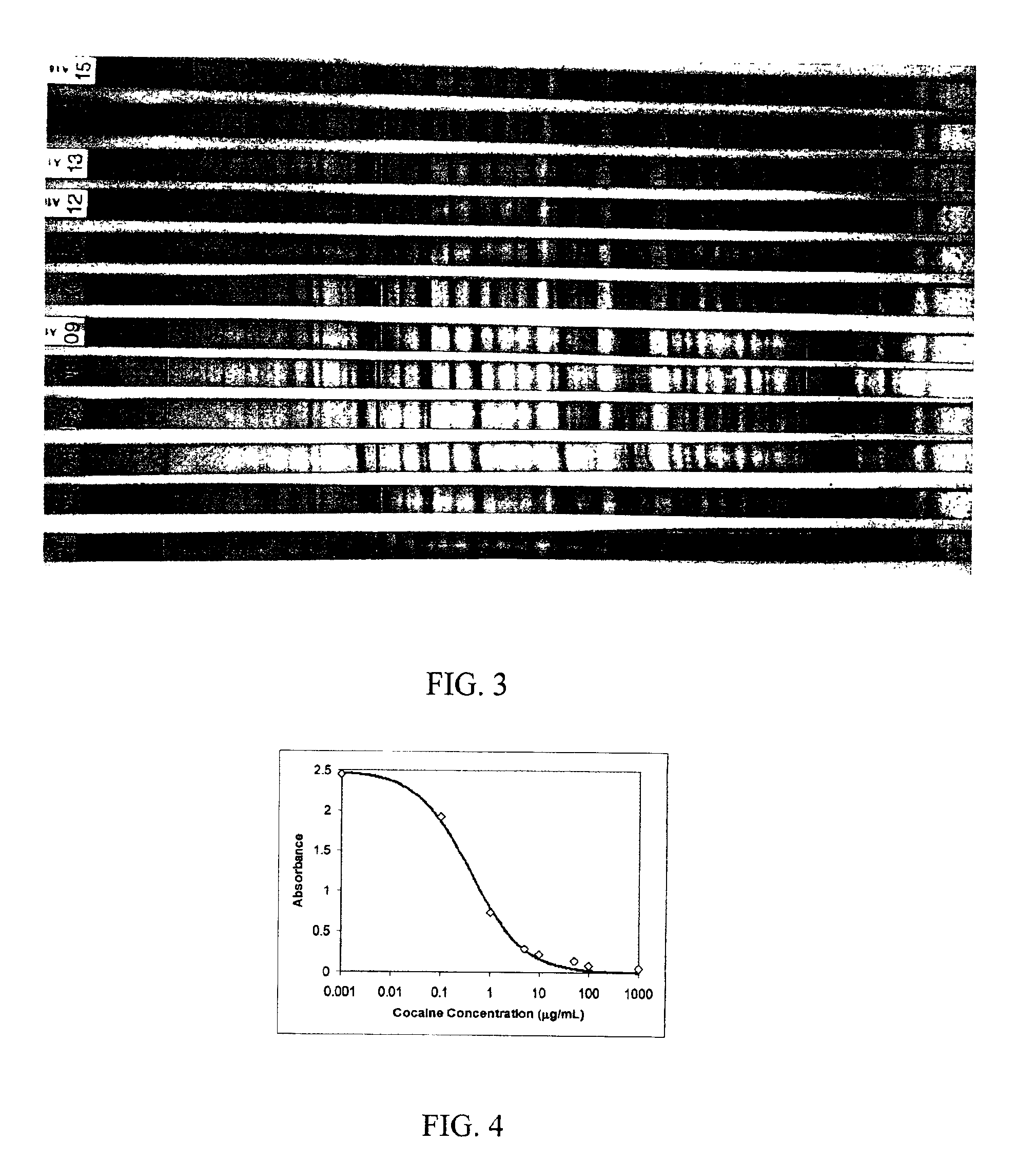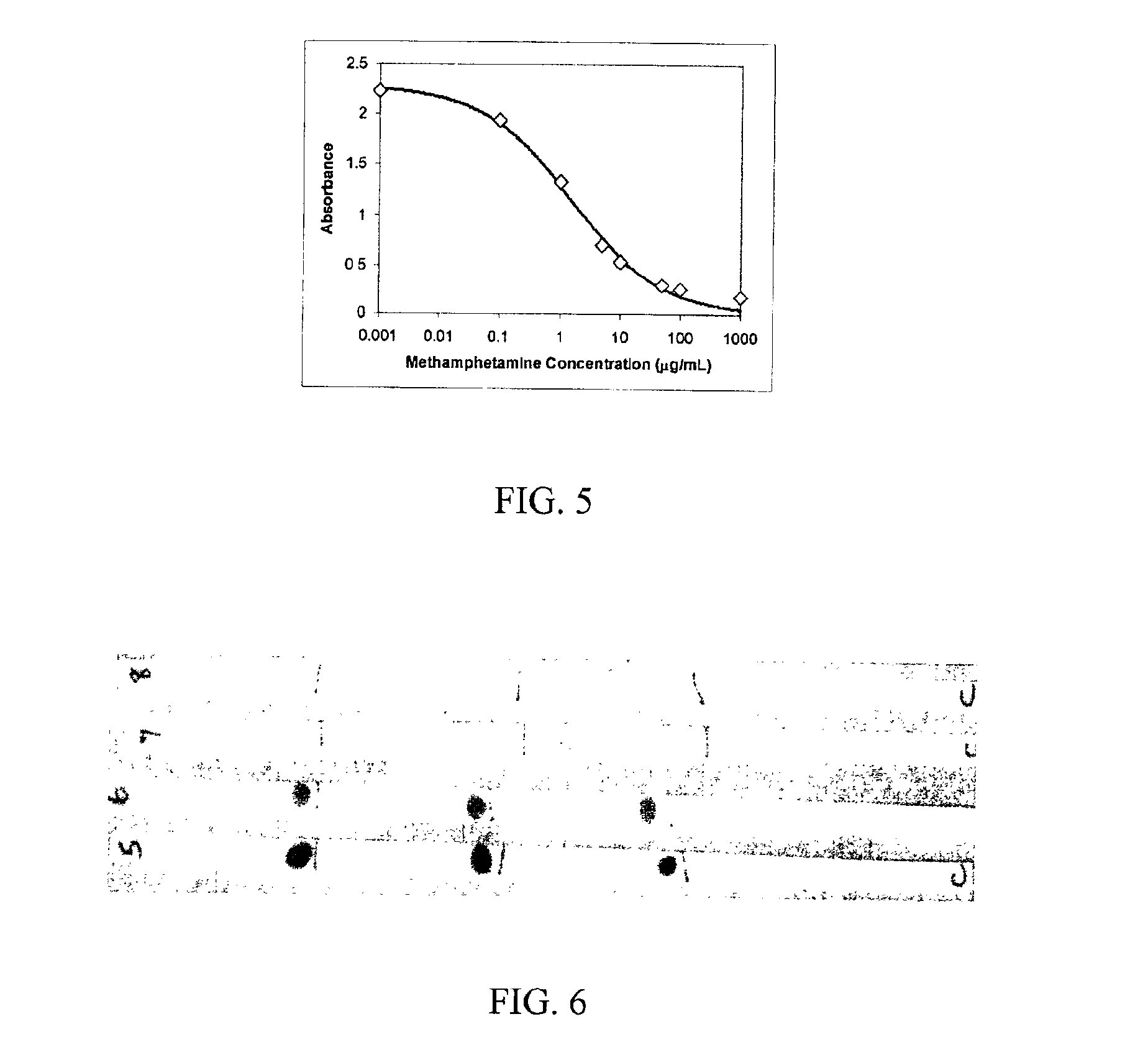Rapid classification of biological components
a biological component and rapid classification technology, applied in the field of biological sample analysis, can solve the problems of blood typing tests, other blood group antigens or isozymes present in body fluids suffer from the same disadvantages, and the method is limited
- Summary
- Abstract
- Description
- Claims
- Application Information
AI Technical Summary
Benefits of technology
Problems solved by technology
Method used
Image
Examples
example 1
[0078]The law enforcement community has demonstrated several needs associated with drug testing of suspects including dealing with privacy issues associated with sample collection, maintenance of sample chain of custody, prevention of sample adulteration by the suspect, and facilitating more rapid turn around time on sample analyses. Current drug testing protocols utilize urine samples and, occasionally, blood samples. Invasion of privacy is a continuing problem with urine samples since it is necessary to observe the individual providing the sample to maintain the chain of custody and eliminate the possibility of sample switching or adulteration. Urine samples are also not a good indicator of the current level of intoxication since many drug metabolites continue to be excreted into urine for days or weeks after the drugs are initially taken. While blood samples do not suffer from these problems, collecting blood is an invasive procedure requiring special facilities and trained perso...
example 2
[0098]In this example the procedure of Example 1 is followed except that fractionated HeLa cell antigens are immobilized on a PVDF membrane in a predetermined pattern as a two-dimensional array. Additionally, cocaine and methamphetamine are immobilized on the membrane as additional spots on the array. After development of color as described, results are substantially similar to those of Example 1.
example 3
[0099]In this example the procedure of Example 2 is followed except that the array is immobilized on a glass slide.
PUM
| Property | Measurement | Unit |
|---|---|---|
| diameter | aaaaa | aaaaa |
| diameter | aaaaa | aaaaa |
| wavelength | aaaaa | aaaaa |
Abstract
Description
Claims
Application Information
 Login to View More
Login to View More - R&D
- Intellectual Property
- Life Sciences
- Materials
- Tech Scout
- Unparalleled Data Quality
- Higher Quality Content
- 60% Fewer Hallucinations
Browse by: Latest US Patents, China's latest patents, Technical Efficacy Thesaurus, Application Domain, Technology Topic, Popular Technical Reports.
© 2025 PatSnap. All rights reserved.Legal|Privacy policy|Modern Slavery Act Transparency Statement|Sitemap|About US| Contact US: help@patsnap.com



